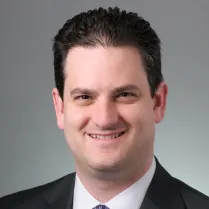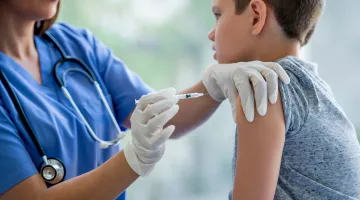The Bridge Program is Here for You during the COVID-19 Pandemic
Author

Todd Kerensky, MD
As the world reels from the COVID-19 pandemic, it’s easy to feel that nothing is as it was before. It can also be tempting to put off your health needs.
But remember: All of your health needs are still important.
That includes your behavioral health needs, and your ability to manage substance use disorder.
South Shore Health’s Bridge Program is open for business during the COVID-19 pandemic.
Learn more about South Shore Health's commitment to safety.
We’ll see any member of the community, as long as they’re not sick with COVID-19 symptoms.
If you do have symptoms such as fever, cough, or shortness of breath, call us in advance. Our team will work with you to get you the help you need.
Adapting behavioral health care during the COVID-19 pandemic
We prefer to do things face-to-face, but we’ve also had to be flexible during this pandemic.
Some patients may think that they should put off treatment to avoid an in-person visit, and are instead trying to “ride out” the pandemic using other means.
However, there’s a lot we can do virtually to keep you safe from a substance use disorder perspective until we can see you in-person.
Treatment is effective. We need to reduce stigma around the treatment of substance use disorder, even during a pandemic.
We have effective treatments that are FDA approved. We’d love to have people recover from their substance use disorder.
I urge anyone reading this to reach out for help. If you’re in crisis, call 911. You can also contact the Bridge Program at 781-624-5065 to speak to our front desk team.
What to expect out of the Bridge Program
If you’re a patient considering services at the Bridge Program, you may be anxious about coming to the hospital. Don’t be — we’re taking every precaution to ensure that all of our patients stay safe.
While the Bridge Program is currently located within South Shore Hospital, we’re separated from traditional patient care areas.
Upon arrival, patients are screened for COVID-19 symptoms and will be given a mask to wear. All providers will be wearing masks as well.
While we feel the Bridge Program is safe for patients, we’re taking steps to minimize in-person visits when possible. For example, we may have patients come in for their intake, and then use virtual visits after that.
Patients can still come in, but depending on their progress, we may see them fewer times in person than we would outside of a pandemic.
Practice mindfulness whenever possible
It goes without saying that these are stressful times for everyone. Reading the headlines or watching the nightly news can cause a great deal of anxiety due to the uncertainty that seems to surround us.
As a result, issues with stress and anxiety are on the rise. Stress and anxiety can lead to coping mechanisms, which can then lead to issues with substance or alcohol use disorder.
It’s important to remember to live in the moment.
Remember that few people alive today have experienced a global pandemic like this, and that the feelings of anxiety and uncertainty are normal.
You’re not in this alone. Focus on your breathing, or on mindfulness-based meditation. There are many resources available online or in traditional print media, including (but not limited to) the writings of Jon Kabat-Zinn from UMASS, who has studied and written extensively about the health benefits of mindfulness-based meditation.
Both of these techniques can help reduce stress and anxiety in the moment, which in turn will help you get your physical health and mental health to a better place.
Todd Kerensky, MD, is Medical Director of Addiction Medicine and a Hospitalist at South Shore Health, and is President-elect of the Massachusetts Society of Addiction Medicine.
Learn more about the Bridge Program and the Grayken Center for Treatment.
This blog was originally published on May 4, 2020.
Author

Todd Kerensky, MD






